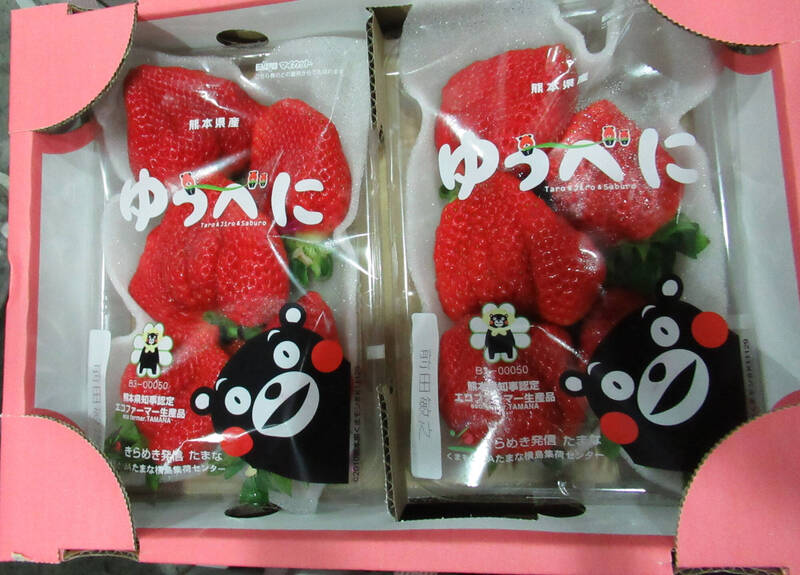During the strawberry season every year, my country imports a large amount of Japanese strawberries, but the violation rate of pesticide residues is extremely high.
(Taken from the Food and Drug Administration’s border inspection violation product statistics)
[Reporter Wu Liangyi / Taipei Report] Food safety issues continue!
From January to February this year, the Food and Drug Administration inspected agricultural products sold in Taiwan for pesticide residues. In addition to general leafy vegetables and root foods, it also included small berries such as strawberries and red berries. Many batches of strawberries imported from Japan were inspected. A number of prohibited pesticides have been issued, including Costco, Breeze Supermarket, and the first "DON DON DONKI" supermarket in China.
Japanese strawberries have been seized and violated regulations at the border many times. The Food and Drug Administration declared that "100% batch-by-batch inspection" will not allow the illegal strawberries to enter the market, but they still failed. Many batches of poisonous strawberries with banned pesticide residues flowed into various supermarkets and channels. 12 pieces Five of the illegal strawberry products came from Japan, with a violation rate of more than 40%. Including the American-style store Costco Taipei Neihu store, a batch of air-freighted Japanese strawberries was found to contain 0.1ppm of the banned pesticide flonicamid.
A batch of Kumamoto strawberries from Japan in the Nanjing store of Breeze Supermarket in Taipei City was also found to contain 0.06ppm of the banned drug Acequinocyl, and Fukuoka Ganwang Strawberries from Don Quixote in Ximending, Taipei City were also found to contain fluniamide.
Please read on...
In addition, 0.03ppm of the banned pesticide Acrinathrin was detected in Japanese strawberries from Meilin Fruit Shop in Taipei City, and 0.24ppm of Fluniamine residues were detected in Japanese strawberries from Taoyuan City’s core fresh fruit wholesale group purchases. 0.05ppm of the banned drugs Cyantraniliprole and 0.06ppm of flunilamine were also detected in the imported "Cranberry-Saga Red Box Berry Mulberry".
The Food and Drug Administration has guaranteed that under the strict regulations of 100% batch-by-batch inspection of Japanese strawberries, no illegal products will enter the market. Why are there still many batches of Japanese strawberries that have residues of banned pesticides?
Lin Jinfu, deputy director of the Food and Drug Administration, admitted that due to a slight improvement in border violations in January and February this year, the inspection frequency was relaxed to between 20% and 50%. In March, when the violations were serious, 100% batch-by-batch inspection was resumed. The strawberries that violated the pesticide residue regulations were seized probably entered the market at that time (during the relaxed inspection period).
Lin Jinfu said that due to the serious violations of Japanese strawberries, the Food and Drug Administration will enforce 100% batch-by-batch inspections from March 20th, and will no longer increase the frequency of border inspections because the violation rate has decreased. It is necessary to apply for inspection before importing, and it can be sold on the market only after the inspection meets the regulations and the inspection certificate is obtained.
Since Japanese strawberry violations are serious, why not suspend the ban on imports?
Lin Jinfu only replied: "We think 100% batch-by-batch inspection is enough, and there is no need to be so strict about banning imports." He said
There are illegal merchants of unqualified agricultural products on the market in northern, central, southern, and eastern counties and cities, including large berries, small leafy vegetables, small berries, leafy vegetables, bean vegetables, fruit vegetables, citrus, spicy plants and Other herbaceous plants, rhizome vegetables, pears and fruits, violators and products have been dealt with by the local government health bureaus, and the traceable domestic agricultural products have been transferred to the agricultural administration for source management.
A complete list of violations can be found on the official website of the Food and Drug Administration.
From January to February this year, the Food and Drug Administration inspected all agricultural products sold in Taiwan to inspect pesticide residues and list violations.
(Provided by the Food and Drug Administration)
From January to February this year, the Food and Drug Administration inspected all agricultural products sold in Taiwan to inspect pesticide residues and list violations.
(Provided by the Food and Drug Administration)
From January to February this year, the Food and Drug Administration inspected all agricultural products sold in Taiwan to inspect pesticide residues and list violations.
(Provided by the Food and Drug Administration)
